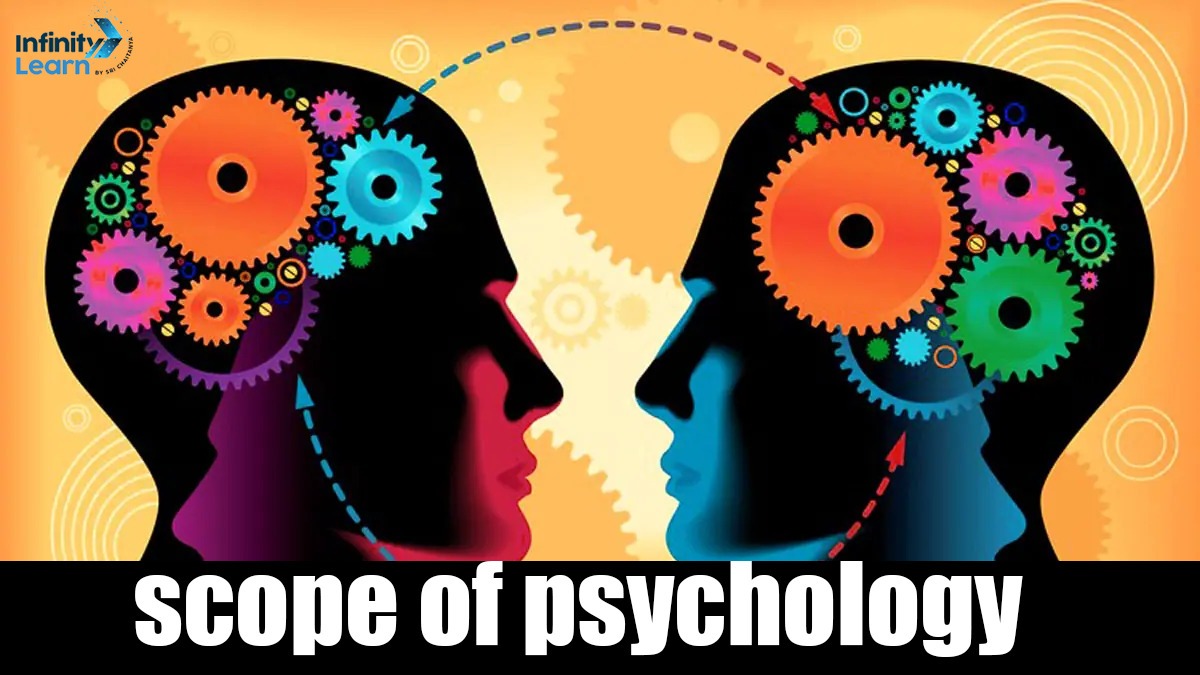Table of Contents
What is Psychology?
Psychology is the study of how the mind works and why people behave the way they do. It explores thoughts, feelings, and actions to understand human experiences like thinking, emotions, and how we interact with others. Psychology includes different areas like clinical psychology, which deals with mental health, cognitive psychology, studying how we think, developmental psychology, which looks at how people grow and change, and social psychology, focusing on how we interact in groups.
Evolution of Psychology
Psychology became its own scientific field in the late 1800s, drawing from ancient philosophical ideas. Important developments include:
- Wilhelm Wundt: Started the first psychology lab in 1879 for experiments.
- William James: Created functionalism, which looks at how mental processes help us adapt.
- Sigmund Freud: Founded psychoanalysis, focusing on the unconscious mind and personality.
- Ivan Pavlov: Developed classical conditioning, a key part of behaviorism.
- B.F. Skinner: Studied operant conditioning to expand behaviorism.
- Abraham Maslow: Introduced humanistic psychology, highlighting self-fulfillment and human potential.
Psychology has since grown into many areas, using new technologies and methods. Today, it continues to evolve by combining insights from different fields to study human thoughts and actions.

Scope of Psychology
Psychology is a broad field that constantly evolves to understand how the mind and behavior of both humans and animals work. It covers a wide range of topics, from the biological roots of thoughts and emotions to how society and culture influence our actions.
Branches of Psychology
1. Basic Psychology: Basic psychology focuses on uncovering the fundamental principles behind human thought, emotions, and behavior. Researchers study things like how we perceive information, learn new things, remember details, find motivation, and understand social situations.
2. Applied Psychology: Applied psychology uses the findings from basic psychology to solve real-world problems. It includes specialized areas such as:
- Clinical Psychology: This branch deals with assessing, diagnosing, and treating mental, emotional, and behavioral disorders.
- Counseling Psychology: Counseling psychologists help people cope with various challenges, including stress, relationship issues, and career development.
- Educational Psychology: Educational psychologists apply psychological theories to improve teaching methods and enhance learning outcomes.
- Industrial-Organizational Psychology: These psychologists focus on understanding human behavior in workplaces and use psychological principles to boost productivity, safety, and job satisfaction.
- Forensic Psychology: Forensic psychologists apply psychological principles to legal issues, such as criminal investigations and court cases.
Subfields of Psychology
- Abnormal Psychology: Studies mental disorders and what causes them.
- Developmental Psychology: Explores how people grow and change throughout their lives.
- Social Psychology: Investigates how individuals think, feel, and behave in social settings.
Each of these areas and subfields contributes to a deeper understanding of human behavior and helps psychologists apply their knowledge to improve lives and address societal challenges.
Career Scope of Psychology
- Clinical Psychologist: Works in hospitals, clinics, or their own practice to help people with mental health issues. They diagnose and treat conditions like anxiety and depression.
- Educational Psychologist: Works in schools or colleges to improve how students learn. They develop programs and strategies to help students succeed academically and emotionally.
- Counselling Psychologist: Works in schools, clinics, or community centers to offer guidance on personal issues. They help with problems like career choices, relationships, and marriage.
- Industrial Psychologist: Works in businesses and companies to make workplaces better. They focus on improving employee performance and relationships among colleagues.
- Research Psychologist: Conducts studies to understand different aspects of human behavior. They work in universities, labs, or research institutions to explore topics such as mental health, education methods, and how people behave at work.
Top 10 Highest Paying Jobs in Psychology in India
| Highest paying Jobs in India | Salary per Annum |
| Psychiatrist | ₹975,328 per year |
| Industrial/Organisational Psychologist | ₹4,25,000 per year |
| Neuropsychologist | ₹496,647 per year |
| School Counsellor/Psychologist | ₹3,02,012 per year |
| Clinical Psychologist | ₹355,326 per year |
| Forensic Psychologist | ₹5,65,000 per year |
| Counselling Psychologist | ₹362,758 per year |
| Sports Psychologist | ₹589,581 per year |
| Education Psychologist | ₹10,65,343 per year |
| Child Psychologist | ₹480,000 per year |
FAQs on Scope of Psychology
What is the Scope in Psychology?
The scope of psychology is vast and diverse, encompassing various branches and applications. It involves the study of mental processes and behavior, using methods such as introspection, observation, experimentation, surveys, interviews, clinical studies, and case studies. Psychology provides frameworks and theories, applying principles in areas like education, health, and industry. It aims to understand individuals and their behaviors in different environments and contexts.
Which Psychology has the Most Scope?
Clinical Psychology has the most scope, as it deals with mental health issues, focusing on analysis, recognition, identification, and treatment of psychological disorders. Clinical psychologists work in hospitals, drug rehabilitation centers, NGOs, and private practice, addressing a wide range of mental health challenges.
What is the Scope of Applied Psychology?
The scope of applied psychology is immense, as it applies psychological principles to various fields. Applied psychology includes Educational Psychology, Industrial Psychology, Clinical Psychology, and many other branches. It helps in developing subject-specific knowledge, understanding oneself and others, and enhancing communication and analytical skills.
Does Psychology Have a Scope in Future?
Yes, psychology has a significant scope in the future. The demand for psychologists is increasing, and the field is evolving to address various challenges. Psychology is applied in various areas, including education, health, and industry, making it a highly rewarding and lucrative field of study.
Where is the Most Scope for Psychology?
The most scope for psychology is in various fields, including:
Clinical Psychology: Focuses on mental health issues and treatment.
Educational Psychology: Studies learning processes and educational settings.
Industrial Psychology: Applies psychological principles to improve workplace performance.
Health Psychology: Explores the relationships between psychological factors and physical health.
Environmental Psychology: Examines the relationships between people and their physical and social surroundings.








